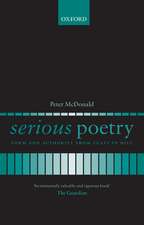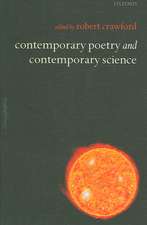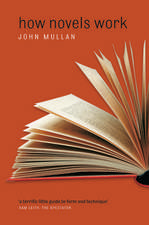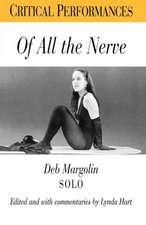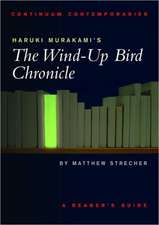Maps of Utopia: H. G. Wells, Modernity and the End of Culture
Autor Simon J. Jamesen Limba Engleză Hardback – 2 feb 2012
| Toate formatele și edițiile | Preț | Express |
|---|---|---|
| Paperback (1) | 193.67 lei 10-16 zile | |
| OUP OXFORD – 2 apr 2020 | 193.67 lei 10-16 zile | |
| Hardback (1) | 699.10 lei 31-37 zile | |
| Oxford University Press – 2 feb 2012 | 699.10 lei 31-37 zile |
Preț: 699.10 lei
Preț vechi: 1006.03 lei
-31% Nou
Puncte Express: 1049
Preț estimativ în valută:
133.77€ • 139.68$ • 110.46£
133.77€ • 139.68$ • 110.46£
Carte tipărită la comandă
Livrare economică 04-10 aprilie
Preluare comenzi: 021 569.72.76
Specificații
ISBN-13: 9780199606597
ISBN-10: 0199606595
Pagini: 246
Ilustrații: One black-and-white halftone
Dimensiuni: 149 x 224 x 21 mm
Greutate: 0.43 kg
Editura: Oxford University Press
Colecția OUP Oxford
Locul publicării:Oxford, United Kingdom
ISBN-10: 0199606595
Pagini: 246
Ilustrații: One black-and-white halftone
Dimensiuni: 149 x 224 x 21 mm
Greutate: 0.43 kg
Editura: Oxford University Press
Colecția OUP Oxford
Locul publicării:Oxford, United Kingdom
Recenzii
The great strength of Maps of Utopia is located in the way it combines an introductory quality with insights that will make the most seasoned devotee of Wells think. Maps of Utopia is undoubtedly one of the very best studies of Wellsâs entire oeuvre. Like all strong monographs, it has implications beyond its immediate subject matter. Thus James implies that English as a subject, whose founding coincided with and perpetuated the exclusion of authors outside the modernist canon, needs to put its house of fiction in order.
One of the strengths of James's book is the depth of research that underlies the detailed contextualisation of Wells's output; it should be added that this output is presented in nearcomprehensive breadth, which again makes the book required reading for any student of Wells.
an insightful reading ... James deftly delineates various narrative devices that Wells deployed to fashion works of "instrumental value" while negotiating the uncomfortable restrictiveness of literary realism and the equally uncomfortable freedom of romance ... a rewarding study of Wells's didactic narrative techniques.
Of the numerous critical books that aspire to explain the importance and shape of Wells whole career, this seems to me one of the best: intelligent, lively, and sensitive to the cultural issues at the heart of Wellss urge to be both an artist and an educator.
James has written one of the best books on Wells in recent memory Including meticulous documentation and informative footnotes but written in an engaging, accessible style, this book will appeal to devotees of Wells, specialists in Victorian and modernist fiction, and those interested in good literary criticism.
It is a very informative read, offering not only an original study of Wells, but also an overview of late 19th- and 20th-century debates on culture to which we should do well to return.
As Editor of The Wellsian, Simon J. James has considerable experience of editing and writing on the works of H. G. Wells and George Gissing. James's latest book acknowledges the recent interest in Wells the man ... but quietly and assuredly refocuses attention on the scientifically motivated aesthetic programme that governed Wells's writing.
Wells' evolutionary views seem to have a relevance today, and if that is the case then it is well that the books about him should be as clear, as well-argued and as comprehensive as this excellant example by Simon James.
One of the strengths of James's book is the depth of research that underlies the detailed contextualisation of Wells's output; it should be added that this output is presented in nearcomprehensive breadth, which again makes the book required reading for any student of Wells.
an insightful reading ... James deftly delineates various narrative devices that Wells deployed to fashion works of "instrumental value" while negotiating the uncomfortable restrictiveness of literary realism and the equally uncomfortable freedom of romance ... a rewarding study of Wells's didactic narrative techniques.
Of the numerous critical books that aspire to explain the importance and shape of Wells whole career, this seems to me one of the best: intelligent, lively, and sensitive to the cultural issues at the heart of Wellss urge to be both an artist and an educator.
James has written one of the best books on Wells in recent memory Including meticulous documentation and informative footnotes but written in an engaging, accessible style, this book will appeal to devotees of Wells, specialists in Victorian and modernist fiction, and those interested in good literary criticism.
It is a very informative read, offering not only an original study of Wells, but also an overview of late 19th- and 20th-century debates on culture to which we should do well to return.
As Editor of The Wellsian, Simon J. James has considerable experience of editing and writing on the works of H. G. Wells and George Gissing. James's latest book acknowledges the recent interest in Wells the man ... but quietly and assuredly refocuses attention on the scientifically motivated aesthetic programme that governed Wells's writing.
Wells' evolutionary views seem to have a relevance today, and if that is the case then it is well that the books about him should be as clear, as well-argued and as comprehensive as this excellant example by Simon James.
Notă biografică
Dr Simon J. James is Professor of Victorian Literature at Durham University. He is the author of Unsettled Accounts: Money and Narrative Form in the Novels of George Gissing and of work on Charles Dickens, H. G. Wells, and Edwardian fiction. He has edited four Wells novels for Penguin Classics, and is the current editor of The Wellsian, the scholarly journal of the H. G. Wells Society.


